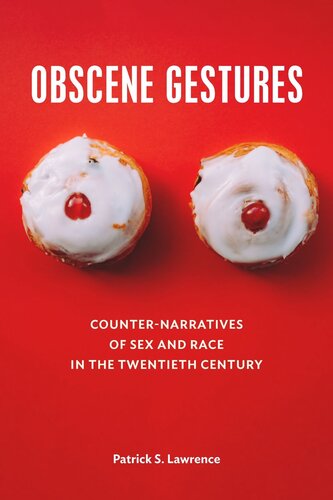

Most ebook files are in PDF format, so you can easily read them using various software such as Foxit Reader or directly on the Google Chrome browser.
Some ebook files are released by publishers in other formats such as .awz, .mobi, .epub, .fb2, etc. You may need to install specific software to read these formats on mobile/PC, such as Calibre.
Please read the tutorial at this link: https://ebookbell.com/faq
We offer FREE conversion to the popular formats you request; however, this may take some time. Therefore, right after payment, please email us, and we will try to provide the service as quickly as possible.
For some exceptional file formats or broken links (if any), please refrain from opening any disputes. Instead, email us first, and we will try to assist within a maximum of 6 hours.
EbookBell Team

4.1
40 reviewsDrawing on sources as diverse as Supreme Court decisions, nightclub comedy, congressional records, and cultural theory, Obscene Gestures explores the many contradictory vectors of twentieth-century moralist controversies surrounding literary and artistic works from Henry Miller’s Tropic of Cancer to those of Toni Morrison, Alice Walker, Kathy Acker, Robert Mapplethorpe, 2 Live Crew, Tony Kushner and others. Author Patrick S. Lawrence dives into notorious obscenity debates to reconsider the divergent afterlives of artworks that were challenged or banned over their taboo sexual content to reveal how these controversies impacted their critical reception and commercial success in ways that were often determined at least in part by racial, gender, or sexual stereotypes and pernicious ethnographic reading practices. Starting with early post-war touchstone cases and continuing through the Civil Rights, Feminist, and LGBTQ+ movements, Lawrence demonstrates on one level that breaking sexual taboos in literary and cultural works often comes with cultural cache and increased sales. At the same time, these benefits are distributed unequally, leading to the persistence of exclusive hierarchies and inequalities.
Obscene Gestures takes its bearings from recent studies of the role of obscenity in literary history and canon formation during the late-nineteenth and early-twentieth centuries, extending their insights into the postwar period when broad legal latitude for obscenity was established but when charges of obscenity still carried immense symbolic and political weight. Moreover, the rise of social justice movements around this time provides necessary context for understanding the application of legal precedents, changes in the publishing industry, and the diversification of the canon of American letters. Obscene Gestures, therefore, advances the study of obscenity to include recent developments in the understanding of race, gender, and sexuality while refining our understanding of late-twentieth-century American literature and political culture.
Free-speech debates have recently taken on new urgency in U.S. politics, and this book sheds light on the racial, sexual, and gendered foundations of this important issue.